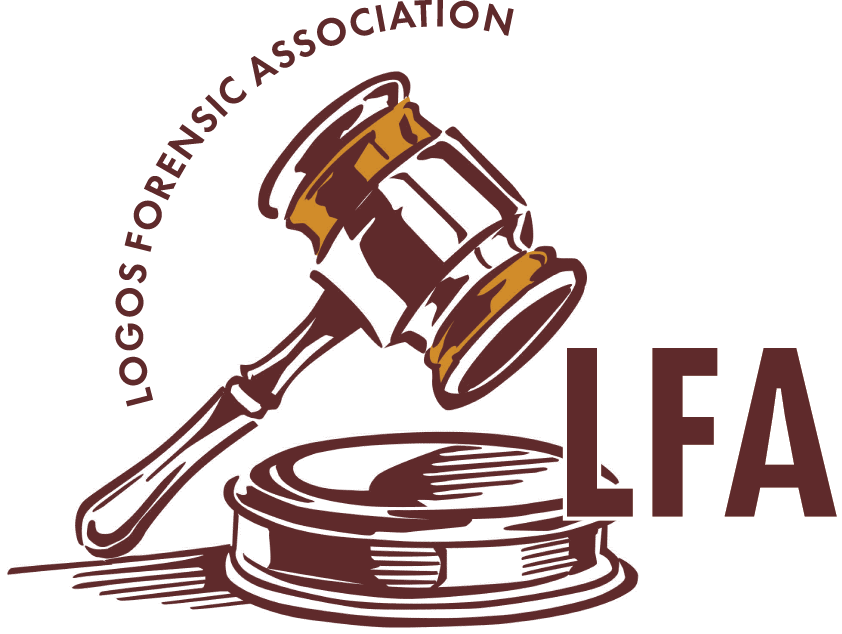Reminder: students must register as league members before they’re eligible to compete.

Speech prepares competitors to examine and respond to diverse perspectives while maintaining poise, composure, and awareness. Students are encouraged to engage in topics that are relevant to today’s issues and deliver their messages using the lens of Scripture.
The LFA offers several individual speaking events that students can compete in, including Apologetics, Impromptu, Monologue, Open Interpretation, and Persuasive.
These events span three overall speech categories: Limited Preparation, Platform, and Oral Interpretation. Regardless of category or event, students deliver a single speech and are ranked against other competitors during the round.
Enhance career and lifelong skills by teaching students:
Apologetics speech encourages competitors to study, articulate, and defend the core foundations of Christianity in a knowledgeable, sincere, and respectful manner, as expressed in 1 Peter 3:15. The competitor has 4 minutes to prepare a persuasive and reasoned speech that defends a tenet of the Christian faith. In advance of competition, each competitor may create a card file with index cards no larger than 4" x 6" size. These cards may contain: Scripture, definitions, quotations, and any other pre-researched material. All questions are chosen from the approved topics list for the season.
Impromptu speaking is designed to test the quick thinking of students in a 5-minute speech. Students have preparation time where they draw three topic choices from the judge, choose one, and then prepare their speech. Students are given a maximum of 2 minutes of preparation time and a maximum of 5 minutes of speaking time. Students should talk about the topic they are given but may interpret their topic in a creative or persuasive manner. Students should draw from their knowledge to provide examples, or application, to their topic. Subject areas that a student might draw from for examples are historical events, famous people, current events, books, philosophy, science, etc.
A Monologue is a speech from a single character where the competitor interprets a monologue from a single published source. No original material is allowed. A portion of the presentation may include a brief analysis, background, and/or context of the monologue. The entire presentation has a maximum time of 5 minutes.
Open Interpretation is an original rendition by the competitor from published or unpublished literature and/or self-written work. The presentation may range from dramatic to humorous genres, and it may include narrative storytelling, or thematic compilations. The competitor may only use the selected piece for one competition season. The entire presentation has a maximum time of 6 minutes.
Persuasive speech is a 10-minute original work by the student, designed to persuade the audience on a topic of the student's choosing. The speech usually identifies a current problem, includes multiple outside sources, and has a call-to-action or solution at the end. Relevancy of topic is important, as is respect for opposing beliefs and opinions. All persuasive speeches must be new each season. A competitor may not reuse any prior year's speech.
There are six categories of Apologetics questions that students are tested on:
Early in the competition season, only a few categories are selected per tournament. As the season progresses, more categories open until all six topic areas are eligible for speeches. Students and coaches can review the full question list in advance for preparation.
The most common topics consist of single words or quotations. These include, but are not limited to:
The most traditional impromptu structure is the three-point speech. This structure, however, is not a rule, and students may structure their speech using any strategy they see fit.
Example
I. Introduction (including topic and thesis)
II. Point 1
III. Point 2
IV. Point 3
V. Conclusion
The monologue may be a poem, as long as the thoughts or voice are from a single character. Interpretive literature may come from a variety of genres including plays, prose or poetry, from a single published work and may not be authored by the competitor. Single person speeches may be used as long they have been published and are available in the public domain.
Open Interpretation allows the competitor to analyze written work(s), then bring them to life through the creative use of voice, movement, and facial expression. The competitor may add as many words to the piece, as there are no word restrictions. Competitors may also give dialogue from one character to another.
Students may choose topics that their audience may or may not already agree with. They can be topics that apply to personal lives (why you should vote, avoiding vaccines), the community (giving charity, supporting local organizations), or the law (a specific program should be repealed, a specific law that should be implemented). Students typically pick topics they are personally passionate about, and that are also applicable or relevant to the audience.
A three-point structure is most often used (but not required). The three-point speech starts with an introduction and has three main points to persuade the audience, followed by a conclusion. The structure could look like, but is not limited to, the following examples:
Example One
I. Introduction
II. Stating and Showing the Problem
III. Identifying the Cause(s) of the Problem
IV. Calling the Audience to Action and Finding the Solution
V. Conclusion
Example Two
I. Introduction
II. History/Background of the Topic to Provide Understanding
III. Stating and Showing the Problem
IV. Calling the Audience to Action and Finding the Solution
V. Conclusion